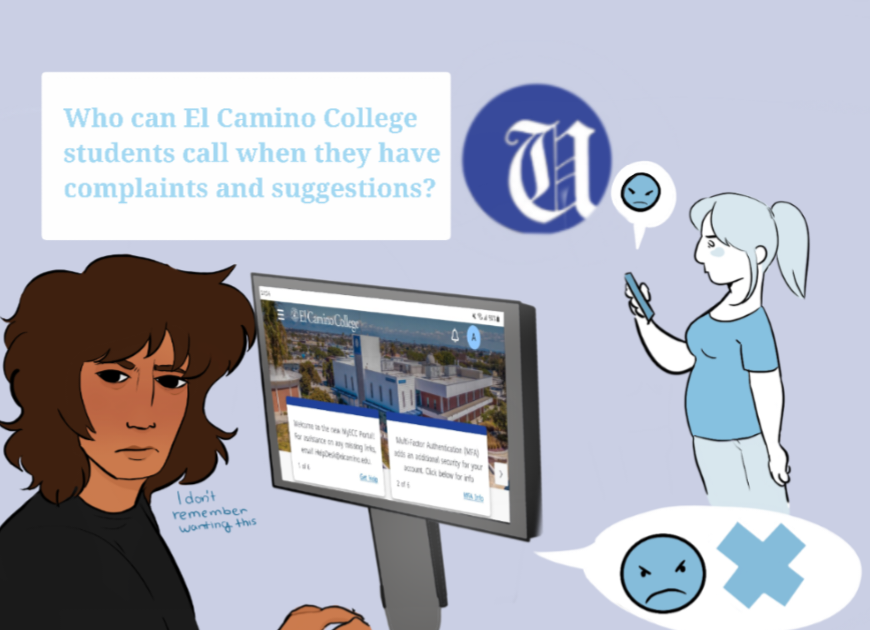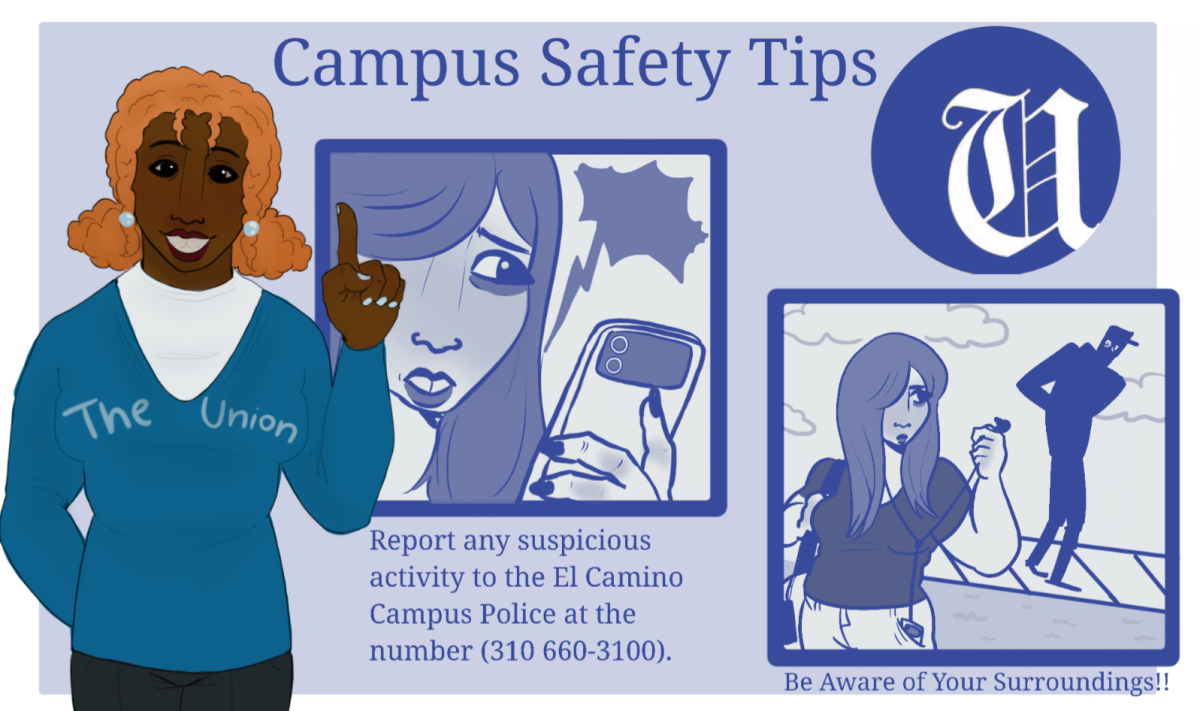El Camino College scam emails have continued to be sent to students this semester, but you never think about it happening to a staff member, or a member of your family, for that matter.
I am in a unique position where my mom attends the same community college as me, not as a student, but as an employee.
Although we don’t deal with similar activities on a regular basis, one thing we’re both vulnerable to are the scares and paranoia that comes with email scams.
My mom, Araceli Broadhead, who is the clerical assistant to El Camino’s vice president of academic affairs, was having a conversation with me about how I became embarrassed about a personal event that recently happened to me.
Rather than dive deeper into what happened, she decided to share something embarrassing that just happened to her; she told me she had become a victim of an email scam.
Although I was compassionate about the event, my mind began to worry about the possible consequences that could happen in the future. But, my mom said not to worry and began to explain what had occurred.
She told me how she was checking emails in the other room to see if she needed to report or forward any information to her boss, Jean Shankweiler.
That’s when she stumbled across an email that was requesting her personal phone number. Interestingly, Jean Shankweiler’s name was typed up perfectly at the bottom, just like any other professional email.
It was then she told me that she didn’t think much of the email, saw her boss’s name and thought she had to respond immediately with the information it was asking.
However, what my mom didn’t know was that she had just been a victim of a phishing scam.
Phishing scams have always been a part of my ECC experience. Although the ones I have encountered have been clear to me that they are fake and shouldn’t be answered, the email my mom described was something I had never experienced before.
This one seemed to be more targeted, a wanting of information, something that can give the hacker an idea of who the person is and what they can do with their information.
According to a recent El Camino article on email scams, Information Security Specialist Paul Yoder brought up three types of typical email attacks that can occur by email, one of them being Pure Phishing, in which a scammer asks individuals they email for personal information, like a phone number.
After sending an email response, my mom continued to look through her emails.
That was until she got a suspicious text message on her phone.
Demands began to be sent to her phone, asking her to go to the store and fulfill their requests, but to no avail. My mom closed the text messages and began questioning what had just happened.
She began looking into where the phone number area code originated from, and after doing a quick Google search, found out it was from Northern California.
Knowing this was most likely not her boss, she began looking back at the email she was sent. She then realized that the email address wasn’t from her boss.
She said that the email address the scammer used did not have the school’s “.edu” in the username portion of the address. Instead, the email itself came from a Gmail account.
After seeing the detail she missed, my mom reported the email from her El Camino issued laptop, then reported to Shankweiler about the events that transpired.
I felt bad for my mom after what had happened. You never want to see a family member go through something that can put their information and potentially their life in jeopardy.
Although the scammer only got away with a phone number, I still worried about her number being used to get more information about her, but fortunately nothing has happened since.
Scams can occur in anyone’s email and any time of the day, asking for personal information that they can use to better themselves. That is why it is important to learn what email scams look like to keep yourself from responding to one.
Her advice parallels what El Camino’s Information Technology Services (ITS) advises students to do if they ever receive an email that they think is a scam.
According to an email from ITS, “legitimate ECC email addresses end with @elcamino.edu (although this can be forged).”
It is also recommended to keep an eye on the email’s content and what it is asking for.
The ITS email also said to “be highly suspicious of any email asking you to do something unusual right away or when the individual is refusing to have a phone conversation about said emergency.”
Students at ECC can report scam emails they receive to ITS, as there are multiple ways to do this, according to the ITS Phishing and Spam User Mitigation Guide.
Although emailing as a concept looks really safe, it can lead to some uncomfortable situations if not careful. Stay safe when answering emails, you never know if someone on the other computer is actually trying to scam you.













